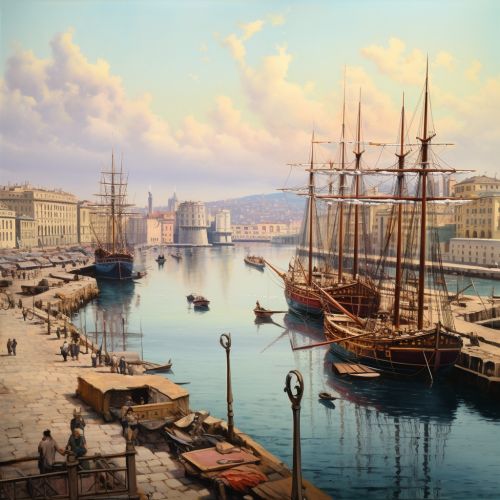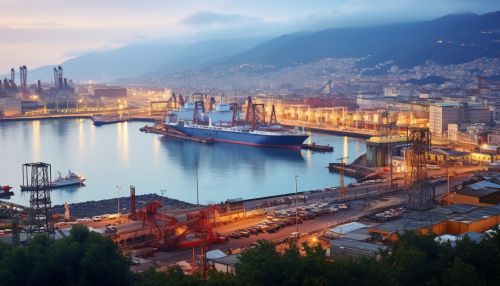Genoa
History
Genoa, known as Genova in Italian, is a city rich in history and culture. It is located in the Liguria region of Italy, on the Gulf of Genoa, which is part of the Ligurian Sea. The city has been an important port on the Mediterranean Sea for centuries, and its history is a testament to the many civilizations that have left their mark on its landscape.
The origins of Genoa can be traced back to pre-Roman times. The city was originally a settlement of the Ligures, an ancient Indo-European people. In the 4th century BC, the city was conquered by the Romans, who expanded the port and used it as a base for their naval operations.


In the Middle Ages, Genoa became an independent city-state and one of the most powerful maritime republics in the Mediterranean, along with Venice, Pisa, and Amalfi. The city's wealth and power during this period are reflected in its grand architecture, including the Palazzi dei Rolli, a series of Renaissance and Baroque palaces in the city's historic center.
In the 19th century, Genoa played a key role in the Risorgimento, the movement for Italian unification. The city was the birthplace of Giuseppe Mazzini, one of the leading figures of the Risorgimento, and it was in Genoa that the famous red, white, and green tricolor flag of Italy was first adopted.
Geography and Climate
Genoa is located in the northwestern part of Italy, along the coast of the Ligurian Sea. The city is surrounded by hills and mountains, which provide a natural barrier and create a unique microclimate. The climate in Genoa is classified as a Mediterranean climate, with mild, wet winters and hot, dry summers.
The city's geography has had a significant impact on its development. The port of Genoa, one of the largest and busiest in the Mediterranean, is located in a natural harbor protected by a promontory. The city's hilly terrain has also influenced its urban layout, with narrow, winding streets and tall, narrow buildings characteristic of the city's historic center.
Economy
The economy of Genoa is diverse and dynamic, with a strong focus on maritime activities. The port of Genoa is one of the most important in the Mediterranean, serving as a hub for cargo and passenger traffic. The city is also a major center for shipbuilding and maritime engineering, with companies such as Fincantieri and Wärtsilä having significant operations in the city.
In addition to its maritime industries, Genoa has a strong manufacturing sector, with a focus on high-tech industries such as aerospace, robotics, and biomedical engineering. The city is also a major center for finance and services, with a number of national and international banks and insurance companies based in the city.
Tourism is another important sector of Genoa's economy. The city's rich history, beautiful architecture, and stunning coastal location make it a popular destination for tourists from around the world. The city's historic center, with its narrow, winding streets and grand palaces, is a UNESCO World Heritage Site.
Culture
Genoa has a rich and vibrant culture, with a strong tradition of music, art, and cuisine. The city is known for its historic theaters, such as the Teatro Carlo Felice, and its lively music scene, which includes a strong tradition of opera and classical music.
The city is also home to several important art museums, including the Palazzo Rosso and the Palazzo Bianco, which house collections of European art from the 16th to the 20th centuries. The city's historic center, with its narrow, winding streets and grand palaces, is a UNESCO World Heritage Site.
Genoa is famous for its cuisine, which is characterized by its use of fresh, local ingredients and simple, flavorful preparations. The city is the birthplace of pesto, a sauce made from basil, garlic, pine nuts, Parmesan cheese, and olive oil. Other local specialties include focaccia, a type of flatbread, and farinata, a savory pancake made from chickpea flour.
